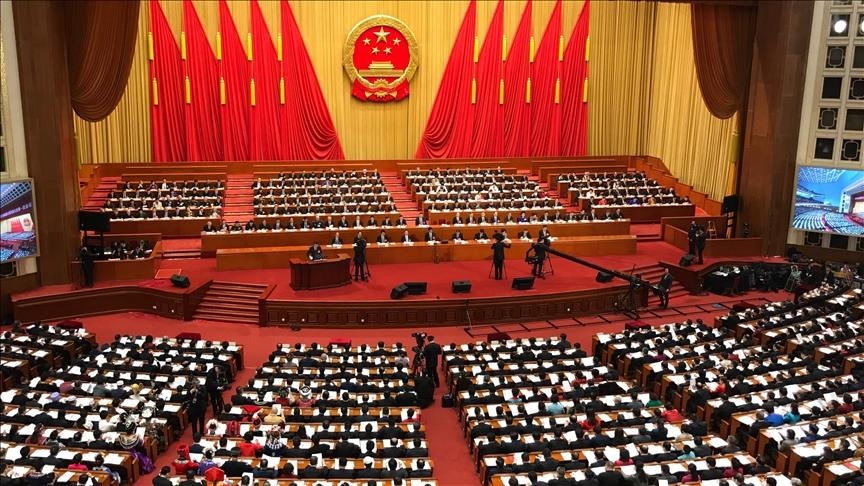China's ruling Communist Party holds crucial 4-day meeting in Beijing
4-day huddle by Central Committee to discuss country’s next 5-year development plan
 File Photo
File Photo
- Ruling elite also expected to discuss new appointments as there are 'at least 16 to 19 senior-level vacancies’ in China’s top political and military institutions, analyst Einar Tangen tells Anadolu
ISTANBUL
The Central Committee of China's ruling Communist Party on Monday kicked off its fourth plenum in Beijing to deliberate on the country’s next five-year development plan.
President Xi Jinping, who is also the general secretary of the Communist Party of China (CPC), delivered a work report on behalf of the Political Bureau and expounded on the party leadership's draft proposals for the formulation of the 15th Five-Year Plan (2026-2030) for national economic and social development.
“Xi is a strong believer in planning. He calls it a major political advantage of socialism with Chinese characteristics,” New York-based Asia Society’s Chinaanalysts Neil Thomas, Lobsang Tsering and Shengyu Wang wrote in a policy brief on the eve of the ongoing plenum.
The four-day huddle will run through Thursday and is also expected to discuss new appointments in the government as well as the party.
A plenum is a convocation of the CPC Central Committee, which comprises the party’s top 205 officials, plus 167 alternate members.
The Central Committee is the highest authority in the CCP and is charged with selecting members of the party’s Politburo and other important appointments.
The Xi-led huddle in Beijing comes as the world's second-largest economy posted a growth of 4.8% in the third quarter of 2025.
China has set an "around 5%" annual GDP growth target for this year.
Eyes on next-gen leadership
The Central Committee huddle may come up with a limited outcome document this week, but full targets and decisions will be presented at the National People’s Congress (NPC) – the Chinese parliament, usually held in March.
According to the Asia Society brief, the Five-Year Plan on national development that sets the goals, targets, and priorities of economic and social policy for the next half-decade will be sent to the State Council – China’s central Cabinet led by Premier Li Qiang - to guide drafting of the full plan, which Beijing will publish once approved by the NPC.
About the ongoing huddle, China affairs analyst Einar Tangen said the “larger issue” in Beijing “is the next generation of leaders.”
“There are at least 16 to 19 senior-level vacancies on China’s top political and military institutions, including the State Council, the Central Military Commission, and provincial leadership,” Einar told Anadolu.
“This is separate from the leadership transition, which generally requires the president and the premier to have five years of experience on the Standing Committee to be ready for taking on their leadership roles,” he explained.
The Standing Committee is a select group of seven people who also sit on the 24-member Political Bureau of the CPC, led by Xi himself.
After taking reins of the CPC in 2012, Xi reduced the members of the Standing Committee from nine to seven.
There are also three vacancies in the seven-member Central Military Commission after three of its members were removed in one of the largest purges in the People’s Liberation Army.
Einar said Premier Li Qiang and Vice Premier Ding Xuexiang “are the two Politburo Standing Committee members who will have five years of experience by 2027 but “are young enough to be considered viable candidates for premier or president.”
Xi’s unprecedented third term, as CPC chief, ends in 2027.
“They are the only ones qualified to take over as president and premier. No one will be added to the Standing Committee at the 4th Plenum. Traditionally, one has to be on the Standing Committee for five years and be within a certain age range. These (two) are the only ones who currently qualify or could qualify under the usual rules,” he explained.








